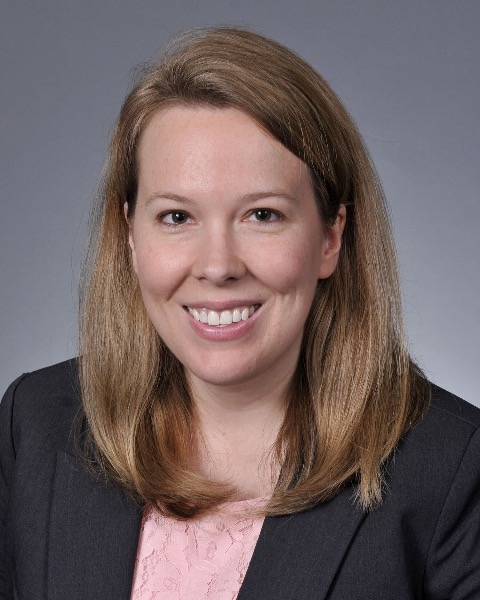Medical Education: Fellow
Medical Education 11: Fellow 2
548 - A Fellow-Led Lecture Series to Improve Knowledge Acquisition of Neonatology Core Topics for Pediatric Residents
Sunday, April 30, 2023
3:30 PM - 6:00 PM ET
Poster Number: 548
Publication Number: 548.325
Publication Number: 548.325
Ashleigh N. Rushing, University of Wisconsin School of Medicine and Public Health, Madison, WI, United States; Adam S. Bauer, University of Wisconsin School of Medicine and Public Health, MADISON, WI, United States; Nina Menda, UnityPoint Health Meriter/University of Wisconsin, Madison, Madison, WI, United States; Eileen Cowan, University of Wisconsin School of Medicine and Public Health, Madison, WI, United States

Ashleigh N. Rushing, MD
Neonatology Fellow
University of Wisconsin School of Medicine and Public Health
Madison, Wisconsin, United States
Presenting Author(s)
Background: Pediatric residents at the University of Wisconsin Hospitals and Clinics completed checklists of 29 core neonatology topics they were taught while rotating through the Neonatal Intensive Care Unit (NICU) from 2017-2020. The frequency each topic was covered was recorded. Topics for inclusion in the fellow-led lecture series were selected if they had been covered less than 20% of the time and were likely to be tested on the pediatric boards using American Board of Pediatrics (ABP) content specifications.
Objective: To implement Plan-Do-Study-Act methodology to improve resident knowledge acquisition for a set of core neonatology topics via a fellow-led NICU lecture series.
Design/Methods: A standardized pre-intervention questionnaire designed to mimic ABP board content was administered to evaluate resident competency in 4 neonatology core topics: Sepsis/TORCH (ID); Cyanosis/Critical Congenital Heart Disease (Cards); Gastrointestinal Obstruction (GI); and Necrotizing Enterocolitis (NEC). A NICU fellow-led lecture series was then implemented, comprised of weekly mini-lectures on each of the 4 topics, over a 6-month period. All pediatric residents rotating through the NICU were offered participation in the lecture series. A pre-recorded video of each lecture was available for residents who were unable to participate in the in-person lecture. A post-intervention questionnaire using the same standardized questions was then administered to eligible residents who had rotated through the NICU during that timeframe.
Results: 35 residents completed the pre-intervention questionnaire and the average correct score for the selected topics was 56% prior to intervention (topic-specific averages were ID: 33%; Cards: 61%; GI: 79%; NEC: 52%). 10 of 20 eligible pediatric residents participated in the in-person lecture series and 1 resident viewed the pre-recorded videos. Post-intervention data demonstrated that of those who responded (6/20), knowledge acquisition improved and the average correct score for the selected topics was 78% after implementation of the lecture series (topic-specific averages were ID: 56%; Cards: 78%; GI 94%; NEC: 83%).
Conclusion(s): A NICU fellow-led lecture series improved resident knowledge acquisition for select core neonatology topics. Further work will look to address barriers to participation in the lecture series and whether content delivered in-person versus pre-recorded videos is of equal effectiveness.
